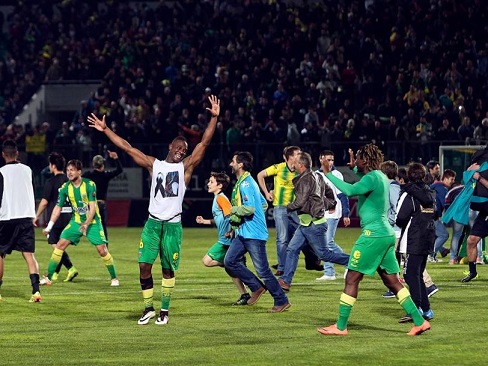 Football is the most popular sport in Portugal, and indeed in the wider world. As youngsters, most of us harbour dreams of being the next Ronaldo. That doesn’t just apply to the boys after the heroic effort of Portugal’s Euro 22 underdogs elevated the importance and profile of the women’s game in the country.
Football is the most popular sport in Portugal, and indeed in the wider world. As youngsters, most of us harbour dreams of being the next Ronaldo. That doesn’t just apply to the boys after the heroic effort of Portugal’s Euro 22 underdogs elevated the importance and profile of the women’s game in the country.
Teenage fantasies of playing at Estádio da Luz are one thing. For 99 percent of us, though, the reality is different and our footballing skills don’t get us beyond the local park. That doesn’t mean we need to entirely give up on our dreams of making a career from our love of football. Here, we look at some vocations that will keep you close to the action and pay a good salary.
Referee
There are actually 23 people out on the field of play, and other than the footballers themselves, nobody is closer to the action than the referee. If you’ve ever wondered how to become a soccer referee, there is a wealth of information online, but in short, FIFA has nine grades through which you can progress through experience and by passing a range of physical and theory tests.
Naturally, you need to have an in-depth knowledge of the game to succeed as a referee. But that is only the start. You’ll also need to keep supremely fit – next time you watch a game, just focus on the referee to see the amount of ground he has to cover. People skills are also supremely important to maintain order during those high-pressure moments and to ensure the game is played in the right spirit.
Coach
Just like referees, coaches have a whole list of qualifications they need to acquire to make it to the top. But none of these count for anything unless you have the necessary hard and soft skills. Hard skills include an in-depth knowledge of football strategy, health science, fitness and nutrition. Soft skills cover areas like pedagogy, leadership and team building.
None of these skills are obtained overnight, but the good news is coaches don’t have to exhibit the same fitness levels as referees. This is why you often see retired players turn to coaching as a second career in later life.
Talent scout
You might not be the next Ronaldo yourself, but perhaps you have the necessary insights and understanding to spot someone who is. That’s the role of a talent scout, and the best part of this job is that it involves watching a lot of football!
As well as the ability to spot talent, you also need to have a good head for numbers in order to both analyse and present a range of performance statistics. Talent scouts must also have be skilled negotiators when it comes to agreeing that final deal.
Security
All the above roles take years of training and study. If you’re looking for a fast track to a job that places you close to the action, every stadium needs security staff.
Entry level places do not require extensive qualifications, as you’ll be given all the training you need, and career progression can be swift.